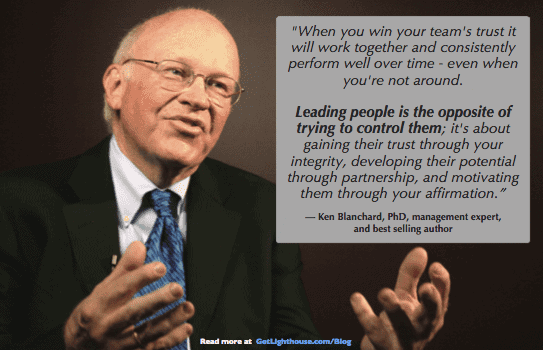Do you know how to manage contractors? Have you had freelancers on your teams?
In an ideal world maybe we'd all have only full time employees who all work closely with us long term. However, in reality, there are a variety of reasons why you may mix in contractors and freelancers to your team.
When you do that, many people change how they manage the person in major ways; they keep them at arms length, don't include them in team activities, and maintain a very transactional relationship.
If you want to bring out the best in your freelancers and contractors, you should rethink that approach. With just a little effort on your part you can bring out their best just like you do with your full time employees.
Today, we'll teach you how to bring out the best in your contractors and freelancers, while acknowledging the places where you need to handle them differently than your other team members.
Table of Contents:
- How to manage contractors - things that are the same:
- How to manage contractors - things that are different:

How to Manage Contractors and Freelancers Effectively
We write a lot about how to be a good manager on the Lighthouse blog. However, it's usually focused on your full time employees.
Today, we tackle the question of how you should manage contractors.
How to manage contractors - things that are the same:
No matter the work situation, some things are important to do with anyone who is on your team to bring out their best. Here's a few of the most important ones for managing contractors and freelancers.

1) Build rapport with them.
No matter who you're working with, a little rapport can go a long way. Think about the caring service provider that remembers the birthdays of all their clients, or the CEO who gets to know the names of their hundreds of employees and their families.
Your contractors are people, too. They deserve a little time to build rapport with you as well.
And the reason you do this is simple: A foundation of trust and psychological safety makes communication and collaboration easier, while also making teams more innovative.
Not sure where to start to build rapport? Check out our post here with dozens of ways to build rapport with anyone regardless of their age or background.
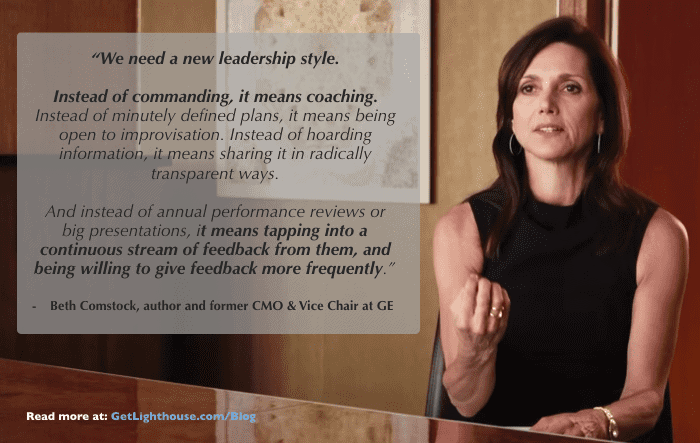
2) Give them feedback and coaching so they can be more effective.
You know what's time consuming? Interviewing, hiring, and onboarding.
They take a ton of time and don't always directly lead to results, because it may be the 1st or 50th candidate that's the right fit.
This is true whether you're bringing on a contractor or a full time employee.
That's why you should have a mindset that you want to coach and find the best ways to work with everyone on your team, including freelancers and contractors.
If instead, you expect your freelancers and contractors to be mind readers and be perfect out of the gate, don't be surprised if both sides get frustrated and the relationship sours. Soon, you may be looking for another contractor, with a half finished project to onboard someone else onto.
That's why it's well worth your time to plan to do some coaching of even freelancers and contractors.
A caveat: It's common to expect your contractors to be already great at their jobs, so don't think of coaching as teaching them how to do the basics of their job. Instead, you'll be coaching them on things like:
- How to get things done inside your organization.
- How to better work together given your team's work styles and constraints.
- Building trust with you, so you can give them more freedom over time in their work.
Want to give better feedback to your contractors? Check out our post here for 5 ways to give better feedback, and ask these 12 questions to be a better coach.

3) Have regular 1 on 1s to make everything better.
If you've read our blog for long, you know we're big fans of 1 on 1s with your employees. As David Cancel remarks in the image above, "it really pays off."
That payoff can include your contractors and freelancers, if you make the time.
Now, depending on the relationship they have with your company (full time vs. part time) and your relationship (worked with them many times before vs. brand new) you can adjust how often you meet between weekly and monthly.
Regardless of the situation and your familiarity, you should make time to check in with them and cover 1 on 1 topics like:
- Getting to know them to build rapport and trust.
- Giving them feedback and coaching to improve how they work with you and your company.
- Asking them for feedback and suggestions for improvement.
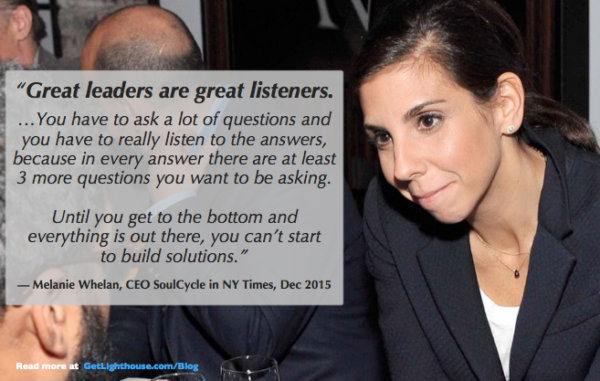
Get more bang for your buck by asking them questions!
That last item is one of the most powerful ways to leverage your contractors and freelancers. They can bring unique perspectives and insights you cannot get anywhere else:
- They're often experts in an area you hired them for, so can share their experience and reasoning behind suggestions with you.
- They don't necessarily worry about their career, so can be more likely to share necessary, hard truths with you versus your employees.
- Their fresh eyes represent a clear view of areas you may have grown too familiar with to see problems for what they are.
However, you won't know if you don't ask.
This is why setting aside some time to meet with them 1 on 1 can be so powerful to improving their productivity, effectiveness, and how you and your team work with them.
Not sure what to ask? Try some of these 100+ one on one meeting questions great managers ask their teams, especially focusing on team and company improvement.
If you go in with a mindset that your contractors and freelancers are order taking, coin-operated machines, don't be surprised if they act like them.
Meanwhile, you can get so much more from freelancers and contractors if you treat them like a trusted partner worth investing in the relationship. That will make all the difference when approaching how to manage contractors and freelancers.

How to manage contractors - things that are different:
There are a few catches to keep in mind when thinking about how to manage contractors and freelancers; for all the things we just covered, there are still some things that you need to do differently for them.
By recognizing this nuance, you can masterfully manage them as well as you do your full time employees.
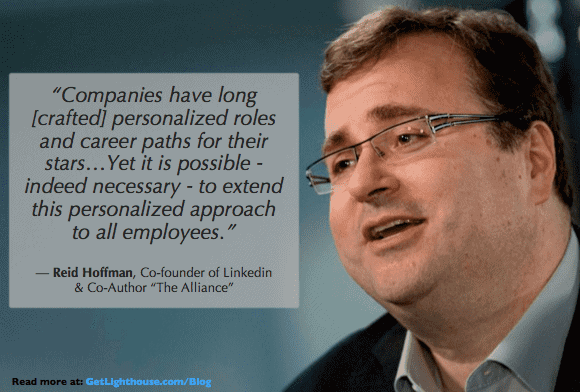
1) Don't talk about their career goals.
If you've been reading the Lighthouse blog for long, you know we talk a lot about the importance of career goals. Helping your employees grow is really important; it helps reduce turnover and bring out the best in your team members, because it's a great source of long term motivation.
Yet, contractors and freelancers are different:
- There's not really a career track, or a way to promote them.
- You typically don't give them performance reviews outside of terminating someone doing subpar work.
- Many people choose to be contractors or freelancers specifically to not be a part of the corporate rat race.
That last one is particularly important. The most successful, and high quality contractors I know often contract with companies they'd never work for. That's both to hedge their bets (better to have 2-4 clients then one full time job), and to remove themselves from workplace drama.
They're very happy with the setup they have, and pushing them to join you when they don't want to join you is a fast way to sour the relationship.
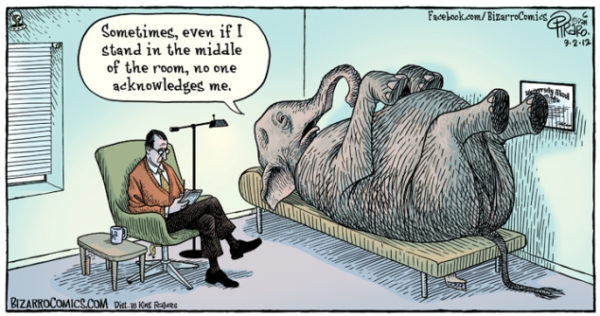
The one exception: Contract to Hire
In some cases, a person is brought on board as a freelancer or contractor as a "try before you buy" setup. The person really would like a full time job, benefits, and to join your company, but can't until they have some success.
In this case, and really all contractors, it's worth talking about any elephants in the room about this; whether you quickly put to bed that they'd never join your company, or really want to know what you expect so they could join, you'll only settle this if you talk about it directly with them.
Once again, this is a place where having semi-frequent 1 on 1s with them (say once a month) is powerful. It gives you a private place to ask and see what they want. They'll appreciate and respect you for asking, as long as you truly listen to them.

2) Be aware of their work differences.
There can be quite a few differences in how someone works when they're a contractor or freelancer versus a full time employee. In fact, you have to often watch out for legal ramifications, or your contractor may get classified as a full time employee owed benefits, health care, etc.
Be sure to consult your legal department, as the IRS defines the rules in the United States with a whole page of questions to ask. However, their golden rule is the most important to remember:
"The general rule is that an individual is an independent contractor if the payer has the right to control or direct only the result of the work, not what will be done and how it will be done."
This is important to keep in mind. You need to be results focused when you think about how to manage contractors and freelancers, versus telling them specifically when and how to do their work.
You may also be very specific about when you expect your employees to be available and working, but you need to be careful how prescriptive you get with your contractors.
Once again, this is where communication is key. You may not be able to dictate when they work, but you're still able to ask them when they choose to work, and talk about key meetings, deadlines, and results.
Clear expectation setting is a key part of a successful working relationship regardless of if they're a contractor, freelancer, or full time employee. Taking the time to understand how they work will make it easier to manage them.

3) Establish what you can and cannot share with them.
There's an old story about investment featuring a pig and a chicken. They're both part of breakfast, but when you eat eggs and bacon, the pig is a lot more invested than the chicken.
The same can be said when thinking about how to manage contractors and freelancers versus full time employees. Your employees are all in like the pig, but contractors and freelancers are less invested, like the chicken.
This puts you (and your boss and company as a whole) in a position to think about what information you should and should not share with the contractor or freelancer:
- Should you share company results for things outside the scope of their work? (i.e. - Tell an engineering contractor about Q1 sales)
- If you're struggling as a company, what if anything should you tell them? (i.e. - Do they need to know about layoffs coming if it doesn't affect them?)
- What proprietary technology, strategies, and plans should they be told about? (i.e. - Do you tell them how what they work on fits into your larger key plans?)
Typically, contractors are excluded from things like company all-hands and similar updates. As you think about how to manage contractors, you need to consider what you should share.
Reflect on what they need, and your company's culture.
A good rule of thumb is to ask two questions:
- Will this added information help them do their job better?
- What is our company's policy on sharing information?
Every company is different, which is why it's so important to ask both questions.
If you worked at a very secretive company like Apple, you can expect that any contractors are kept very much on a "need to know" basis. Meanwhile, if you work at a company that's part of the "Open Startups" movement, you may be encouraged to share everything with them.
Either way, setting the stage from Day 1 with them how little or much transparency they can expect can help you be a better manager for your freelancers and contractors.

A little thought goes a long way...
While the rules and approaches for how to manage contractors and freelancers effectively may be a bit different than managing full time employees, the same basic rule applies: a little thought goes a long way.
Think ahead to where there could be some tension and what you need to make them successful.
Because let's face it: the last thing you want to do is have to fire a contractor and go through a hiring process again.
Many problems can be avoided by starting on the right foot and having honest conversations about both side's expectations about the topics we've covered today.
Are you growing as a leader? Are you building the skills you need?
Whether your team is in office with you or remote, Lighthouse Lessons can teach you the skills you need to better lead, motivate, and grow your team. Let us help you navigate the unique challenges of being a leader like we helped Daniel by learning more and signing up here.

